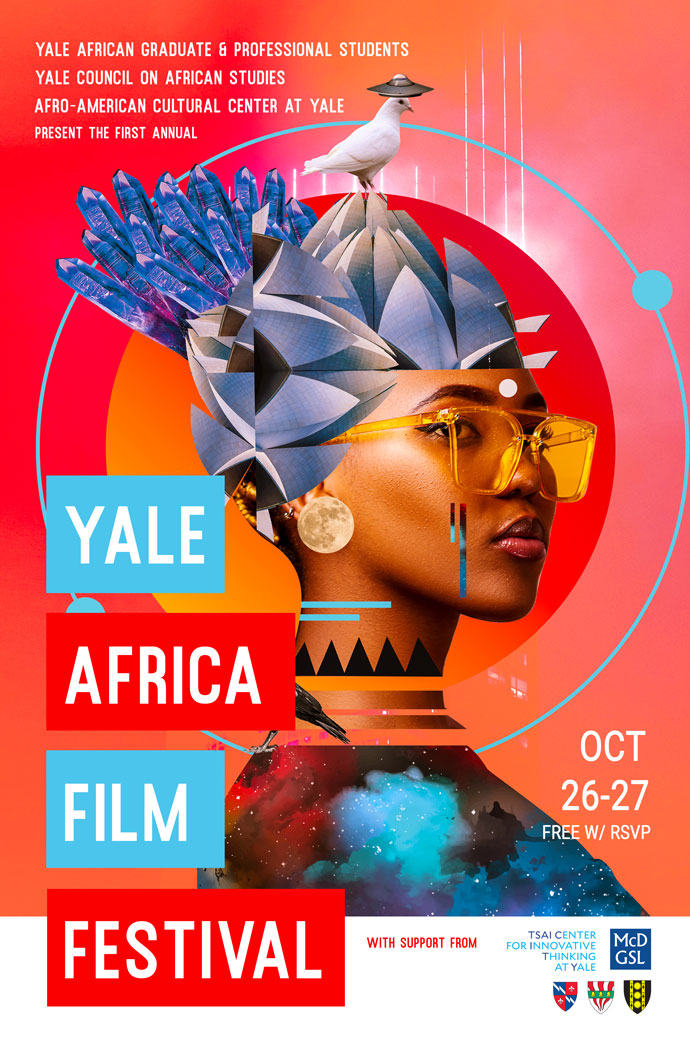
Courtesy of Kaylan M
The MacMillan Center’s Council on African Studies, in partnership with Yale African Graduate & Professional Students and the Afro-American Cultural Center at Yale hosted the inaugural Yale Africa Film Festival this weekend.
From Friday to Saturday, the festival screened three main movies — “Mma Moeketsi”, by award-winning South African director Rea Moeti; “Kasala” by Nigerian Ema Edosio; and “Bigger than Africa” by Toyin Adekeye. Q&A sessions with the movies’ respective filmmakers followed each film screening. The festival also showed two documentaries: “Ephasini Lamabhudango” — ”My Dream World” — and “Awani: A Colonial History of Women.” The festival featured a panel discussion on “Impact and Opportunities in African Filmmaking” and other social events.
“The importance of this film festival goes two ways. One is that, by hosting this film festival, it increases the brand of Yale in Africa,” said Ifeanyi Okafor SOM ’19, co-president of the Yale African Graduate & Professional Students group and a member of the festival’s planning team. “The other way is that this helps the film industry in Africa. By using the platform of Yale, we can increase African filmmakers’ access to international recognition, and to help them tell the diverse stories that they want to.”
Okafor added that although this was the first time that the Yale African Graduate & Professional Students group was hosting the festival, it was “important that [they] started this.” He said that the group wants to “sustain and grow in momentum” and expects that in ten years the festival will become “very big.”
For one of the movie screenings, participants filled the seats of Berke Auditorium to watch “Kasala”, a low budget Nollywood — a moniker for Nigerian Hollywood — comedy about a hectic day in the life of four young men living in a Nigerian slum.
The director, Ema Edosio, said in the Q&A session after the screening of “Kasala” that she directed the film because she wanted to create “something new and different.”
“In Nollywood, when filmmakers tell stories about being low-income, they’re either too depressing and sad or really eager to present something beautiful,” she said. “So I wanted to show a more nuanced perspective of the lives of people — especially the tenacity with which they live.”
The festival attracted not just members of the Yale community, but New Haveners and students from other nearby universities as well. Attendees interviewed by the News said they enjoyed the inaugural festival.
Yale alumna and New Haven local resident Elisabeth Anton ’89, said that she decided to attend the festival because as an undergraduate, she did not have the time to fully partake in Yale’s cultural events.
“As an undergraduate student, I never had the time to attend all the amazing cultural events. But now that I have more time, I’ve been exploring them and came across this festival in an email,” she said. “I also lived in Africa until a few years ago, so I thought it would be interesting to learn more about African films.”
Brianna Thomas, a graduate student at Emerson College, said that she came to the festival because she wanted to support black filmmakers, since they do not receive a lot of attention in general.
Faith Chumo ’21, a student from Nairobi, Kenya, said that one of the reasons why she attended the festival was the lack of representation of African movies in her videography class at Yale.
“We, as Africans, need to think more about how to tackle the misrepresentation of Africa in media,” Chumo said. “I think this festival is a great opportunity.”
Ayumi Sudo | ayumi.sudo@yale.edu .







